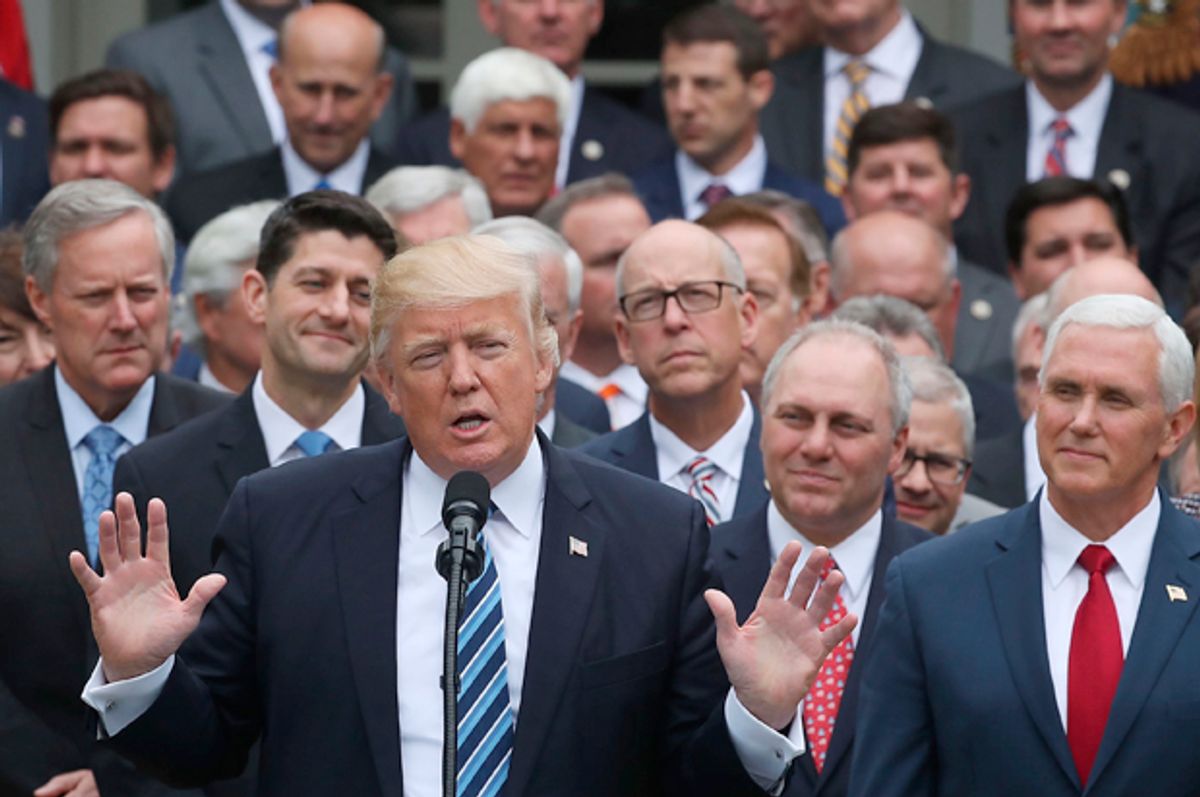On Thursday, President Donald Trump signed an executive order that could significantly erode the protections provided by the Affordable Care Act -- if the administration can ever get it implemented.
The executive order instructed the Labor Department to determine ways that could allow small businesses and individuals to purchase health insurance through nationwide association health plans, according to CNN. It could also increase the wiggle room for employers within the same industries to offer group coverage across state lines, make it easier for employers to impose health reimbursement arrangements on their workers instead of paying for insurance themselves and allow consumers to buy short-term policies that don't abide by the Affordable Care Act's protections for people with preexisting conditions.
One concern about Trump's executive order is that by potentially allowing association health plans to avoid both Affordable Care Act regulations and oversight from state governments it could create a dynamic in which a disproportionate number of sick people are left in the Obamacare exchanges. That, in turn, could cause premiums for sick individuals to drastically increase.
But the regulatory process is notoriously slow. Any real-world impact would like take years -- it it ever happens at all.
Not surprisingly, however, Trump had a more glowing outlook on the new system.
"With these actions, we are moving toward lower costs and more options in the health care market, and taking crucial steps toward saving the American people from the nightmare of Obamacare," Trump said after signing the bill.
He added, "This is going to be something that millions and millions of people will be signing up for, and they’re going to be very happy. This will be great health care."
If there is one silver lining for health care consumers, it is that most of the changes included in Trump's order will not be implemented until the public has had an opportunity to comment and the federal agencies then adopt specific regulations. This could take several months to complete.
"This is a case where doing something is worse than doing nothing. It's not going to solve the problem at all and remember, it affects a very small number of people," said Ezekiel Emanuel, one of the architects of Obamacare, to CNN.
Trump made multiple previous efforts to outright repeal Obamacare, all of which failed. Critics lambasted those efforts by pointing out that they could throw millions of Americans off of their health insurance. The most notable unsuccessful attempt was scuttled at the last second by Sen. John McCain, R-Ariz., who famously voted with a thumbs down on a so-called "skinny repeal" during a key July vote.

Shares